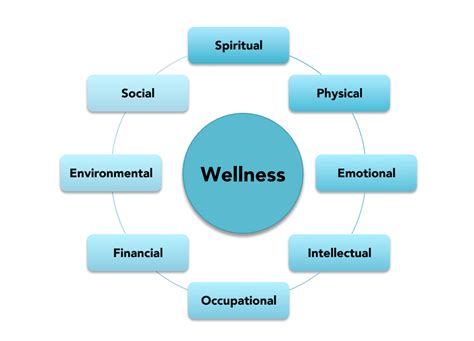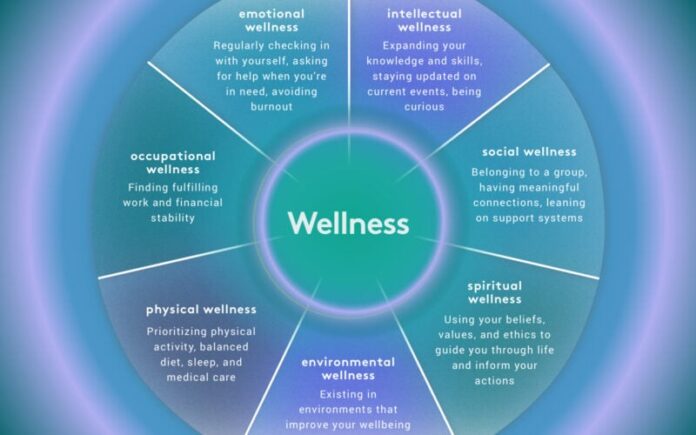Obsessive-Compulsive Disorder (OCD) is often seen as a personal challenge, but its impact extends into professional life, affecting productivity, focus, and job satisfaction. For individuals striving to advance in their careers, overcoming the obstacles posed by OCD can be a transformative step toward professional growth. This article explores the ways in which managing and mitigating OCD symptoms can enhance career success. By understanding OCD, seeking professional help, and developing coping strategies, individuals can not only manage their condition but thrive in the workplace. With the right tools and support, it’s possible to turn OCD into a stepping stone for career advancement.
Delve into this topic with terylblog.com for a comprehensive understanding.
1. Understanding OCD: Definition and Symptoms
Obsessive-Compulsive Disorder (OCD) is a mental health condition characterized by recurring, unwanted thoughts (obsessions) and repetitive behaviors (compulsions). These obsessions can create significant anxiety, which individuals attempt to alleviate through compulsive actions. For example, someone might repeatedly check if they’ve locked the door or washed their hands due to irrational fears of harm or contamination.
OCD is not just about quirky habits or perfectionism; it can be debilitating, interfering with daily life and professional responsibilities. Common symptoms include intrusive thoughts, fear of losing control, and the need for order or symmetry. Compulsions often manifest in behaviors such as excessive cleaning, organizing, or mental rituals.
These symptoms can vary in severity, but they typically lead to distress and can consume significant time and energy. Understanding the nature of OCD is the first step toward managing its impact on personal and professional life. By recognizing the symptoms, individuals can better address their condition, seek help, and implement strategies to mitigate its effects in the workplace.

2. The Impact of OCD on Professional Life
OCD can significantly impact professional life, often manifesting in various ways that affect job performance and workplace dynamics. Individuals with OCD may experience persistent and intrusive thoughts that interfere with their ability to focus on tasks. This can lead to excessive time spent on repetitive behaviors, such as reviewing work or organizing materials, resulting in decreased productivity and missed deadlines.
The need for perfectionism and order can also create challenges in collaborative environments. Individuals may struggle with delegating tasks or accepting completed work from others, fearing it’s not up to their standards. This can strain relationships with colleagues and hinder team cohesion.
Additionally, the anxiety associated with OCD symptoms can contribute to stress and burnout. The constant need to perform rituals or avoid certain triggers can be mentally exhausting, affecting overall job satisfaction and well-being.
Understanding these impacts is crucial for both employees and employers. By acknowledging the challenges OCD presents, workplaces can develop strategies to support affected individuals, ultimately fostering a more inclusive and productive work environment. Addressing these issues not only benefits individuals with OCD but also enhances overall workplace morale and efficiency.

3. Strategies for Managing OCD in the Workplace
Managing OCD in the workplace involves implementing strategies that address both the symptoms and their impact on job performance. One effective approach is to establish a structured routine that incorporates breaks and time management techniques to reduce the urge for repetitive behaviors. Setting clear goals and prioritizing tasks can help maintain focus and productivity.
Utilizing organizational tools, such as checklists and scheduling apps, can aid in managing tasks without falling into perfectionistic traps. These tools help streamline workflow and minimize the need for excessive checking or redoing tasks.
Communication is key. Employees should feel empowered to discuss their needs with supervisors and colleagues. Creating an open dialogue about accommodations, such as flexible deadlines or modified tasks, can alleviate stress and improve job performance.
Mindfulness and stress reduction techniques, including cognitive-behavioral strategies, can help manage anxiety and intrusive thoughts. Regular practice of these techniques can lead to better emotional regulation and reduced compulsive behaviors.
Additionally, seeking support from a mental health professional can provide personalized strategies and therapies to manage OCD symptoms effectively. By integrating these approaches, individuals can enhance their professional growth and well-being.

4. Seeking Professional Help: Therapy and Medication Options
Seeking professional help is crucial for managing OCD effectively, and it typically involves a combination of therapy and medication. Cognitive-behavioral therapy (CBT) is one of the most effective treatments, particularly a specialized form known as Exposure and Response Prevention (ERP). ERP helps individuals confront their fears gradually and reduce their reliance on compulsive behaviors.
Medication can also play a significant role in managing OCD symptoms. Selective serotonin reuptake inhibitors (SSRIs), a class of antidepressants, are commonly prescribed to help balance brain chemicals associated with anxiety and OCD. These medications can help alleviate symptoms and improve overall functioning.
It is important for individuals to work closely with a mental health professional to determine the most appropriate treatment plan. Regular follow-ups and adjustments may be necessary to find the right combination of therapy and medication. Professional guidance ensures that the treatment is tailored to individual needs and that any side effects are monitored and managed effectively. Seeking help from a qualified therapist or psychiatrist can lead to significant improvements in managing OCD and enhancing overall quality of life.
5. Developing Effective Coping Mechanisms
Developing effective coping mechanisms is essential for managing OCD and improving professional life. One key strategy is to establish a consistent daily routine that minimizes stress and reduces opportunities for compulsive behaviors. Incorporating structured breaks and relaxation techniques can help manage anxiety and prevent burnout.
Mindfulness and relaxation exercises, such as deep breathing, progressive muscle relaxation, or meditation, can be beneficial in managing intrusive thoughts and reducing overall stress. These practices help individuals stay grounded and focused, which can diminish the urge to engage in compulsions.
Setting realistic goals and breaking tasks into smaller, manageable steps can also alleviate the pressure that often triggers OCD symptoms. Prioritizing tasks and using organizational tools, such as planners and to-do lists, helps maintain focus and reduces the need for excessive checking.
Engaging in regular physical activity can improve mood and overall well-being, which supports better management of OCD symptoms. Additionally, developing a support network of friends, family, or support groups provides encouragement and practical advice, creating a buffer against the challenges of OCD.
By integrating these coping mechanisms, individuals can enhance their ability to manage OCD effectively and maintain a balanced, productive professional life.
6. Creating a Supportive Work Environment
Creating a supportive work environment is crucial for employees managing OCD, as it fosters inclusion and reduces the impact of symptoms on job performance. Employers can start by implementing flexible work policies that accommodate individual needs. This might include flexible hours or the option to work remotely, which can help reduce stress and manage symptoms more effectively.
Encouraging open communication between employees and management is essential. Providing a safe space for employees to discuss their needs and challenges without fear of stigma helps in addressing issues proactively. Training for managers and colleagues on mental health awareness can promote empathy and understanding, reducing potential misunderstandings and fostering a more inclusive workplace.
Workplaces can also benefit from establishing clear and realistic expectations for performance and productivity. Setting achievable goals and providing regular feedback helps employees with OCD manage their workload without feeling overwhelmed.
Additionally, offering access to employee assistance programs (EAPs) or mental health resources can provide valuable support. These resources might include counseling services, stress management workshops, or mental health days.
By creating a supportive and understanding work environment, employers can help employees with OCD thrive, leading to improved job satisfaction, productivity, and overall well-being.
7. Success Stories: Professionals Who Have Overcome OCD
Success stories of professionals who have overcome OCD highlight the potential for significant career growth and personal achievement. For instance, a well-known tech executive managed to transform their OCD by adopting effective coping strategies and seeking therapy, leading to a successful career in a high-pressure industry. Their journey demonstrates how structured routines and mindfulness techniques can facilitate both professional and personal success.
Similarly, a published author with OCD used their experiences to create impactful literary works, turning their challenges into creative inspiration. Their story underscores how overcoming OCD can lead to new opportunities and professional fulfillment.
These success stories illustrate that with the right support and strategies, individuals with OCD can excel in their careers. They serve as powerful examples of resilience and show that managing OCD effectively can lead to remarkable achievements and a fulfilling professional life.
8. The Role of Employers in Supporting Employees with OCD
Employers play a pivotal role in supporting employees with OCD by fostering an inclusive and accommodating work environment. One key aspect is providing flexibility in work arrangements, such as adjustable hours or remote work options, which can help employees manage their symptoms more effectively. By offering such accommodations, employers can alleviate some of the stress and anxiety associated with OCD.
Training and awareness programs for management and staff are also crucial. Educating the team about OCD and its impact can promote empathy and reduce stigma, creating a more supportive atmosphere. Managers should be equipped to handle conversations about mental health sensitively and offer practical solutions for workplace adjustments.
Implementing clear and realistic performance expectations helps employees with OCD manage their workload without feeling overwhelmed. Regular feedback and open lines of communication allow employees to express their needs and discuss any challenges they face.
Additionally, providing access to mental health resources, such as Employee Assistance Programs (EAPs) or counseling services, offers employees support beyond the workplace. By taking these steps, employers can significantly enhance the well-being and productivity of employees with OCD.
9. Resources and Tools for Ongoing Management and Growth
Access to resources and tools is essential for ongoing management and growth when dealing with OCD. Cognitive-behavioral therapy (CBT) apps and online platforms offer convenient ways to practice techniques like Exposure and Response Prevention (ERP) outside of therapy sessions. These tools provide guided exercises and tracking features to help individuals manage symptoms more effectively.
Mindfulness and stress reduction apps can also be beneficial. Apps offering guided meditations, breathing exercises, and relaxation techniques help users integrate mindfulness practices into their daily routine, which can reduce anxiety and compulsive behaviors.
Support groups and online forums provide valuable peer support and shared experiences. Engaging with others who understand the challenges of OCD can offer encouragement, advice, and a sense of community.
Additionally, educational resources, including books and webinars on OCD, can enhance understanding and provide new strategies for managing symptoms. Staying informed about the latest research and treatment options ensures that individuals have access to effective methods for ongoing personal growth.
By utilizing these resources and tools, individuals with OCD can continue to develop effective coping strategies, enhance their professional and personal lives, and achieve long-term success.
Overcoming OCD in the workplace is a journey that involves understanding the condition, implementing effective strategies, and leveraging support systems. By adopting structured routines, seeking professional help, and fostering a supportive work environment, individuals can manage their symptoms and enhance their career growth. Success stories of professionals who have triumphed over OCD serve as inspiring examples of resilience and potential. With the right resources and tools, individuals can navigate their challenges, achieve professional success, and lead fulfilling lives.
terylblog.com
